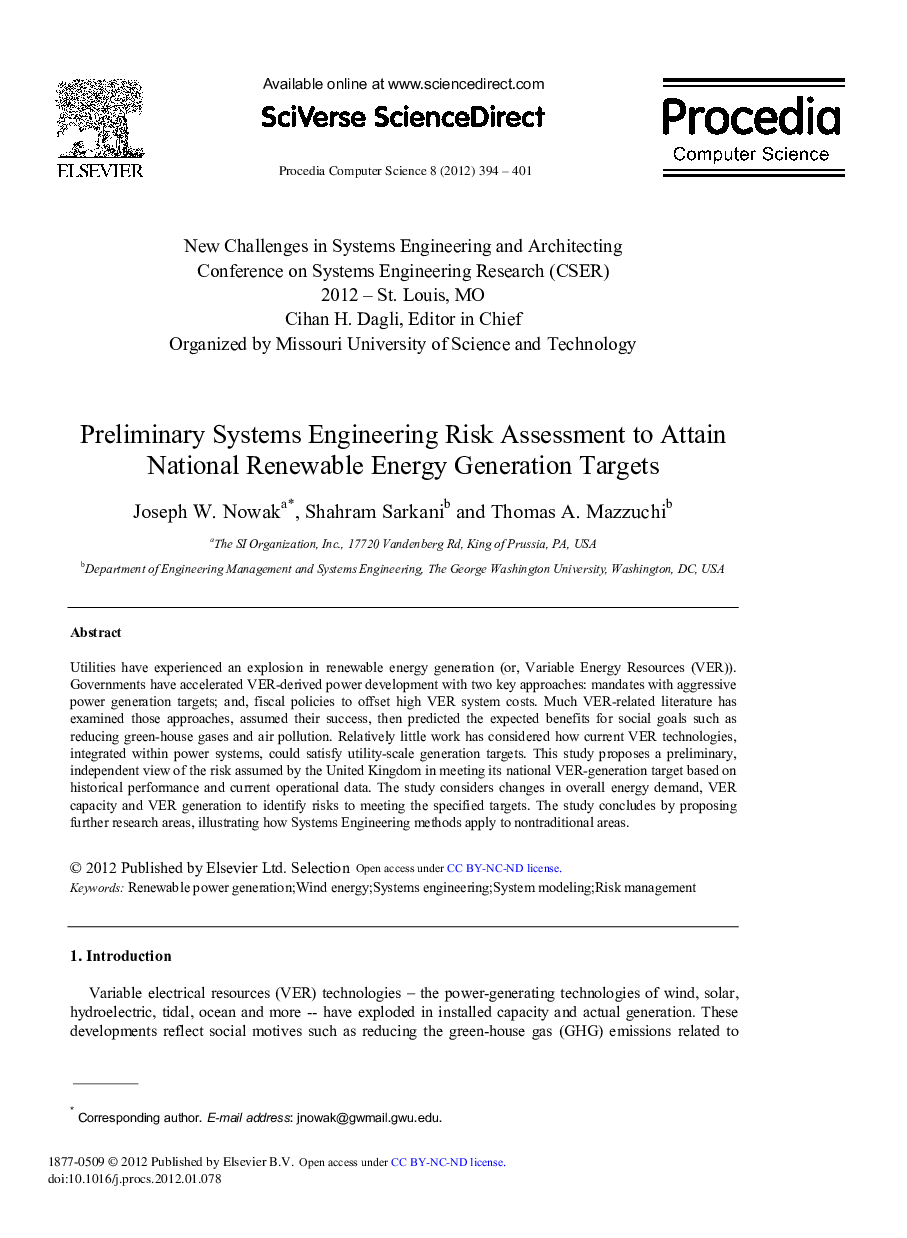| Article ID | Journal | Published Year | Pages | File Type |
|---|---|---|---|---|
| 488114 | Procedia Computer Science | 2012 | 8 Pages |
Utilities have experienced an explosion in renewable energy generation (or, Variable Energy Resources (VER)). Governments have accelerated VER-derived power development with two key approaches: mandates with aggressive power generation targets; and, fiscal policies to offset high VER system costs. Much VER-related literature has examined those approaches, assumed their success, then predicted the expected benefits for social goals such as reducing green-house gases and air pollution. Relatively little work has considered how current VER technologies, integrated within power systems, could satisfy utility-scale generation targets. This study proposes a preliminary, independent view of the risk assumed by the United Kingdom in meeting its national VER-generation target based on historical performance and current operational data. The study considers changes in overall energy demand, VER capacity and VER generation to identify risks to meeting the specified targets. The study concludes by proposing further research areas, illustrating how Systems Engineering methods apply to nontraditional areas.
